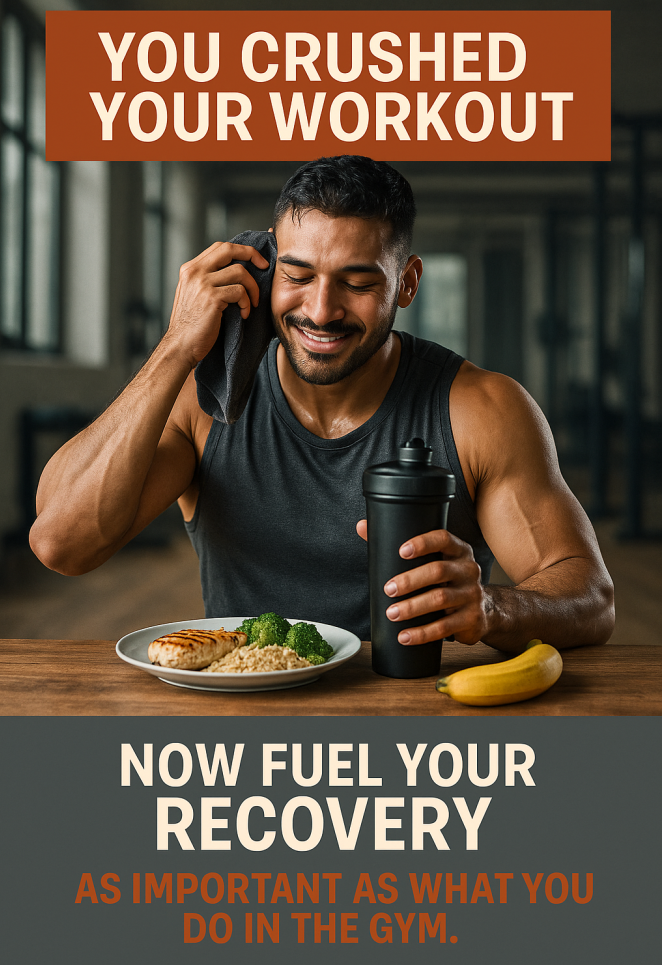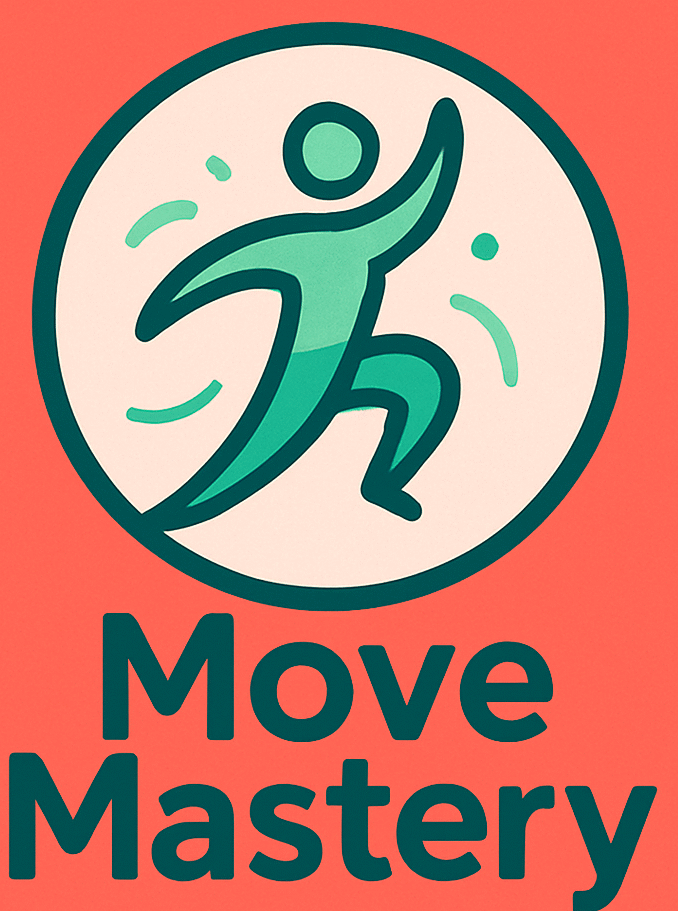You crushed your workout. You pushed, pulled, sweated, and maybe even shouted through those final reps. But here’s the thing—the work doesn’t end when you drop the dumbbells or leave the spin studio. What you do in the kitchen post-workout is just as important as what you do in the gym.
Seriously. When you finish that last set, your muscles aren’t done—they’re actually just getting started.

💥 What Happens to Muscles After You Work Out?
Let’s geek out for a second (but in a cool way). Every time you lift weights, sprint, or cycle like you’re escaping a zombie apocalypse, your muscle fibers experience tiny tears, also called micro-tears. No, it’s not a bad thing—it’s literally how muscle building works.
This process is called hypertrophy, and it’s the body’s signal that says, “Hey, we need to rebuild these muscles stronger so we can handle this again.”
But there’s more going on. Your glycogen stores—your muscles’ fuel tanks—get drained during exercise. Glycogen is stored carbs, and after a tough workout, your tank is running on fumes.
So what do your muscles want after a sweat session? Nutrients. Lots of them.
🦸♂️ Protein Synthesis to the Rescue
After exercise, your body shifts into repair mode. This is where protein synthesis enters the scene. It’s the process where your body rebuilds those damaged muscle fibers, making them stronger and more resilient.
But—and this is a big but—this repair won’t happen optimally without the right building blocks: protein and carbohydrates. You need both. Think of protein as the bricks and carbs as the workers and tools rebuilding the house.
Let’s break down what you should eat and when, because timing and quality matter big time.
🥩 Why Protein Is King (But Carbs Are the Power Behind the Throne)
When people think “muscle recovery,” protein is usually the first thing that comes to mind—and for good reason.
Protein provides the amino acids your body needs to rebuild muscle tissue. Aim for 20–40 grams of high-quality protein within an hour after your workout to kickstart recovery.
Here are some top protein picks:
- Grilled chicken breast or turkey
- Greek yogurt
- Eggs (with yolks for extra nutrients)
- Whey or plant-based protein shakes
- Tofu or tempeh for plant-based athletes
But hold up—don’t skip the carbs! Carbohydrates replenish glycogen and help shuttle those amino acids into muscle cells more efficiently.
Think:
- Sweet potatoes
- Brown rice or quinoa
- Oats
- Bananas or berries
- Whole grain wraps or bread
Combining protein and carbs post-workout creates a synergistic effect—they work better together than alone. It’s not just about eating; it’s about eating smart.
🧪 What Science Says: Post-Workout Nutrition Isn’t Optional
Multiple studies back this up: your post-workout meal directly impacts your muscle recovery, performance, and future gains.
Let’s be real—if you’re skipping your recovery meal or relying on random snacks, you’re leaving gains on the table.
Here’s what science-backed recovery nutrition does:
- Rebuilds muscle fibers via protein synthesis
- Restores depleted glycogen stores
- Reduces muscle soreness (hello, DOMS!)
- Prepares your muscles for the next workout
- Supports hormonal recovery (like restoring insulin and cortisol balance)
It’s not about “dieting”—it”’s about fueling for performance.
🕒 Timing Matters: When Should You Eat After a Workout?
The old “anabolic window” myth claimed you had to eat within 30 minutes of training or risk losing your gains. That window has been… well, expanded.
Here’s the real deal: Aim to eat within 1–2 hours post-workout. That’s the sweet spot when your muscles are primed to absorb nutrients like a sponge.
Don’t stress about hitting the 30-minute mark exactly. Just be consistent. And if you’re doing fasted workouts (like early-morning training), refueling becomes even more critical afterward.
🧃 Hydration: The Recovery Secret Most People Ignore
Let’s not forget the liquid side of recovery. Water is essential for every single metabolic process, including muscle repair. Even being slightly dehydrated can impair strength, slow down recovery, and make you feel like garbage.
But wait—there’s more! You also lose electrolytes through sweat, especially sodium, potassium, and magnesium.
Post-workout hydration tip:
- Drink 16–24 oz of water for every pound lost during exercise
- Replenish electrolytes with coconut water, sports drinks (low sugar), or add a pinch of sea salt to your water
- Bonus: add magnesium or a hydration powder to support muscle relaxation
🍽 Sample Post-Workout Meals (Delicious + Recovery-Approved)
Here are some balanced meal ideas depending on your vibe and diet style:
For the Meat Lover:
Grilled chicken, roasted sweet potatoes, and sautéed spinach
– High-protein, complex carbs, iron, and antioxidants
For the Plant-Based Athlete:
Lentil quinoa bowl with avocado and roasted veggies
– Complete plant protein, healthy fats, slow-digesting carbs
For the Busy Bee:
Protein smoothie with banana, almond butter, oats, and whey
– Fast, portable, and hits all macronutrients
For the Low-Carb/Keto Crew:
Scrambled eggs with avocado and smoked salmon
– Lower carbs, high in protein and omega-3s for inflammation
❌ Common Post-Workout Mistakes (You Don’t Want These)
Let’s steer clear of these recovery killers:
🚫 Skipping your post-workout meal
You’re not saving calories—you’re delaying recovery and potentially losing muscle.
🚫 Eating too little
Your body needs enough nutrients to rebuild. Undereating can stall progress and zap energy.
🚫 Relying only on supplements
Supplements can help, but real food should be your foundation. Don’t let powders replace meals.
🌟 Final Thoughts: Recovery is Where Growth Happens
You train hard—so don’t waste all that effort by neglecting the recovery side of the equation. Fuel your body right, and it’ll reward you with stronger muscles, better performance, and faster progress.
To recap your post-workout recovery nutrition strategy:
- Eat protein + carbs within 1–2 hours
- Hydrate and replenish electrolytes
- Balance whole foods with supplements if needed
- Make recovery nutrition a habit, not an afterthought
📝 Bonus: Want a One-Page Recovery Cheat Sheet?
I’ve put together a free downloadable Post-Workout Nutrition Cheat Sheet with:
- Food lists
- Meal combos
- Hydration hacks
- Supplement tips
Drop your email and I’ll send it straight to your inbox so you never guess your recovery meal again. 👇
Click here to download your Post-Workout Nutrition Cheat Sheet
